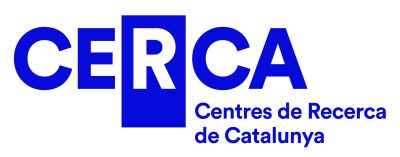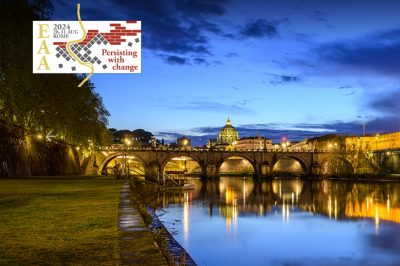
El ICAC-CERCA cierra el verano dejando una gran huella en el 30.º Congreso Anual de la European Assotiation of Archaeologists (EAA), celebrado en Roma del 28 al 31 de agosto.
Este importante evento reunió a expertos de todo el mundo para explorar la diversidad y complejidad de la práctica arqueológica, desde la interpretación histórica hasta la gestión del patrimonio y la política del pasado y el presente.
La destacada presencia del ICAC-CERCA incluyó 19 contribuciones y liderazgo en siete sesiones, reflejando la profundidad y amplitud de nuestra investigación.
El grupo de investigación GIAP contribuyó en el 30.º Congreso Anual de la EAA con 13 presentaciones y la organización de 5 sesiones.
Sesiones:
- Valentina Pescini lideró la organización de la sesión 482: ‘Past Is Not Past’. Environmental Effects of Past Land Use on Present Resources Ecology. Environmental Archaeology between Research and Application.
- Federica Riso, Alexandra Livarda y Patricia Vandorpe coorganizaron la sesión 598: The Archaeobotany of the Cities and Urban Landscapes.
- Faidon Moudopolous-Athanasiou lideró la organización de la sesión 669: Ottoman-era/historical Archaeology: Materials and Methods in Context.
- Alexandra Kriti lideró la organización de la sesión 1009: Beyond the Lens: Contemporary Methods and Interdisciplinary Synergies in Archaeology.
- Iban Berganzo-Besga y Nazarij Bulawka coorganizaron la sesión 1071: Machine Learning Methods in Archaeological Research: New Approaches, Barriers and Standardization.
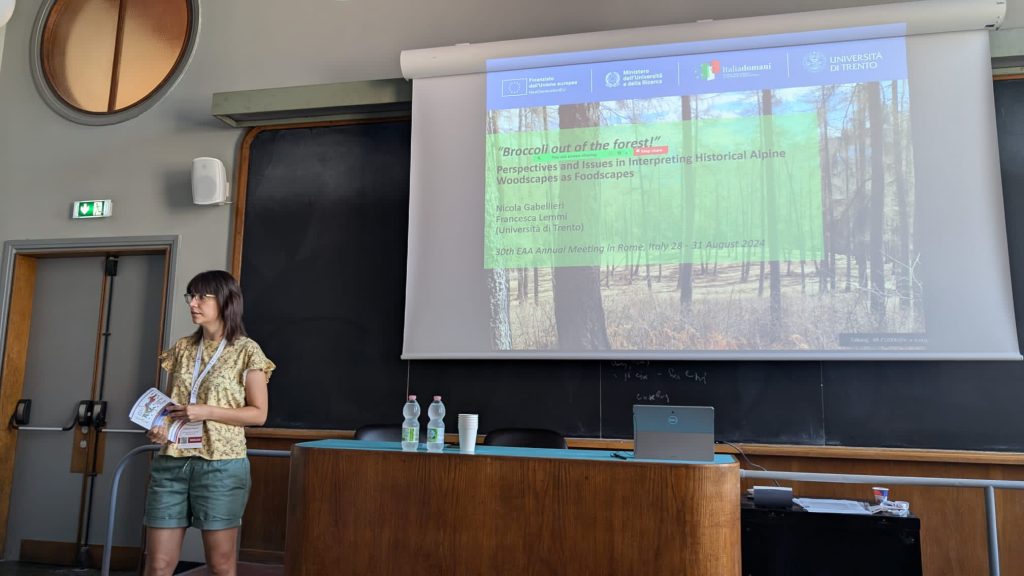
Presentaciones:
- Valentina Pescini (ICAC-CERCA) con Lorenzo Braga, Eleonora Rattighieri, Ivano Rellini y Assunta Florenzano (Università degli Studi di Modena e Reggio Emilia) presentaron “Transhumance Landscapes in the Southwestern Italian Alps: The Contribution of Palynology in Environmental and Cultural Heritage” (Session 482. ‘Past Is Not Past’: Environmental Effects of Past Land Use on Present Resources Ecology. Environmental Archaeology Between Research and Application).
- Chiara Messana (UAB-IPHES), Carles Tornero (UAB-IPHES) y Lídia Colominas (ICAC-CERCA) presentaron “Beyond Grazing: A Multi-isotope Approach to Investigate Sheep Feeding Strategies in the Iron Age Iberian Peninsula (3rd C. Bc)” (Session 463. Methods of Analysing Subsistence Resources, Landscape Management and Exploitation Practices Between the Bronze Age and Iron Age).
- Andrew Mclean (ICAC-CERCA) y Šprem, Katarina (independent researcher) presentaron “Connectivity, Road Networks And The Rural Economy Of Roman Istria” (Session 390. Modelling Connections: New Methodologies to Understand Human Mobility, Route Networks and Land).
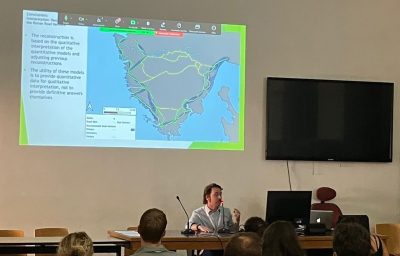
- Faidon Moudopolous-Athanasiou (ICAC-CERCA) presentó “Milk Without Honey: An Archaeological Ethnography of Lime Across the Albanian-greek Border and the Early Modern Cultural Landscape” (Session 505. Ethnographies of Makers and Making: Traditional Craft and Technology in Contemporary Societies).
- Theoni Baniou, Alexandra Livarda y Patricia Vandorpe, del ICAC-CERCA, con Núria Romaní (UAB), presentaron “Digging in The Wells: Food and Trade Relations in Roman Guissona” (Session 598. The Archaeobotany of Cities and Urban Landscapes).
- Federica Riso y Alexandra Livarda (ICAC-CERCA) presentaron “An Archaeobotanical Exploration of Urban Food Practices Through Time in Roman Italy” (Session 598. The Archaeobotany of Cities and Urban Landscapes).
- Patricia Vandorpe y Alexandra Livarda (ICAC-CERCA) presentaron “Food Plants and Social Dynamics in the Urban Settlements of the Northern Roman Provinces” (Session 598. The Archaeobotany of Cities and Urban Landscapes).
- Nazarij Bulawka (ICAC-CERCA) y Hèctor A. Orengo (ICREA-ICAC) presentaron “Underthesands: Investigating Ancient Irrigation Landscapes in Arid Climates Through Remote Sensing and Deep Learning Methods” (Session 745. Remote Sensing of the Changing Mediterranean, Middle East and North Africa Region).
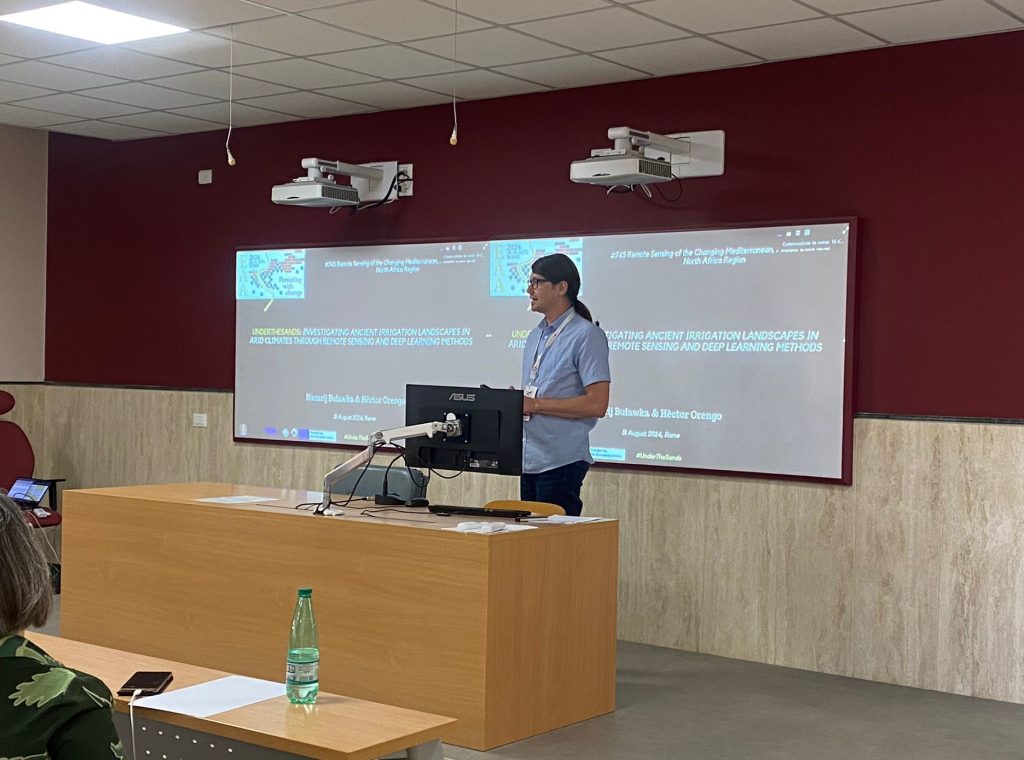
- Laura Strolin y Lídia Colominas (ICAC-CERCA), y Gabriella Petrucci (independent researcher), presentaron “Investigating Animal Mobility in the Roman World. A Geometric Morphometric Study of Faunal Remains from North-eastern Iberian and Italian Peninsulas” (Session 904. Mobility, Movement and Interaction in the Ancient World: New Avenues of Interpretation).
- Alexandra Kriti (ICAC-CERCA), Alexandra Livarda (ICAC-CERCA), Hèctor A. Orengo (ICREA-ICAC), Ioannis Mylonas (HAO-IPBGR) y Eñossavet Ninou (International Hellenic University) presentaron “Lab-induced Heating of Greek Barley (H.Vulgare) Landraces; A Set of Experimental Methods to Explore Past Agricultural Practices” (Session 1009. Beyond The Lens: Contemporary Methods And Interdisciplinary Synergies In Archaeobotany).
- Sayantani Neogi y Francesc Conesa (ICAC-CERCA), y Hèctor A. Orengo (ICREA-ICAC), presentaron “Post-conflict Landscapes in Eastern Mediterranean: Geoarchaeological and Automated Remote Sensing Mapping of Vulnerable Archaeological Soilscapes in the Lebanese Bekka Valley” (Session 745. Remote Sensing of the Changing Mediterranean, Middle East and North Africa Region).
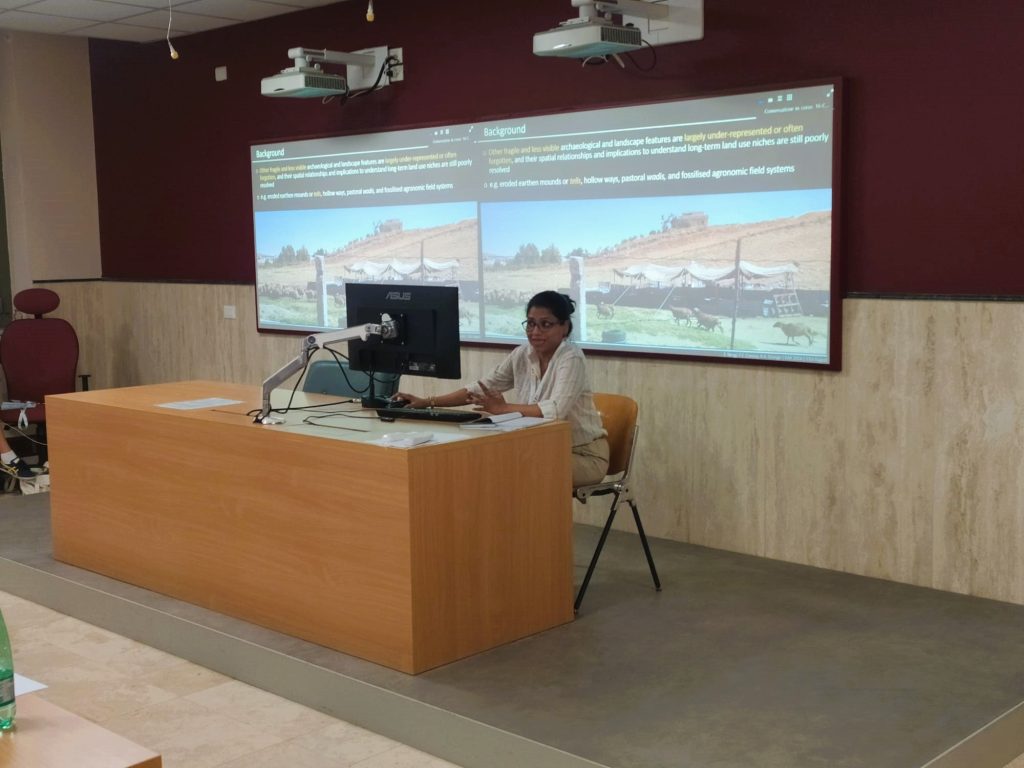
- Iban Berganzo-Besga (Univ. of Toronto Mississauga), Hèctor A. Orengo (ICREA-ICAC) y Felipe Lumbreras (CVC-UAB) presentaron “Computer Vision Best Practices in Computational Archaeology” (Session 1071. Machine Learning Methods in Archaeological Research: New Approaches, Barriers and Standardization).
- Valentina Pescini (ICAC) y Nicola Gabellieri (Univ. di Trento) presentaron “Interdisciplinary Research on Charcoal Kiln Sites in Montieri (Tuscanyitaly): Environmental Dynamics and Woodmanship Practices between 18th-20th Century” (Session 1082. The Archaeology of Eu-potarch: The Production of Potash, Tar, Resin and Charcoal in the Archaeological Record).
El grupo de investigación MIRMED presentó cuatro contribuciones y organizó dos sesiones en el 30.º Congreso Anual de la EAA.
Sesiones:
- Marta Mateu, M. Carme Belarte y María Pastor organizaron la sesión 160: Mysterious Mud: A Transversal Approach to Interpreting Unsolved Earthen Remains.
- Enric Colom coorganizó la sesión 417: Hispania and the Mediterranean: New Approaches to the Analysis of Sea-and-inland Networks (3rd C. Bc-7th C. Ad).
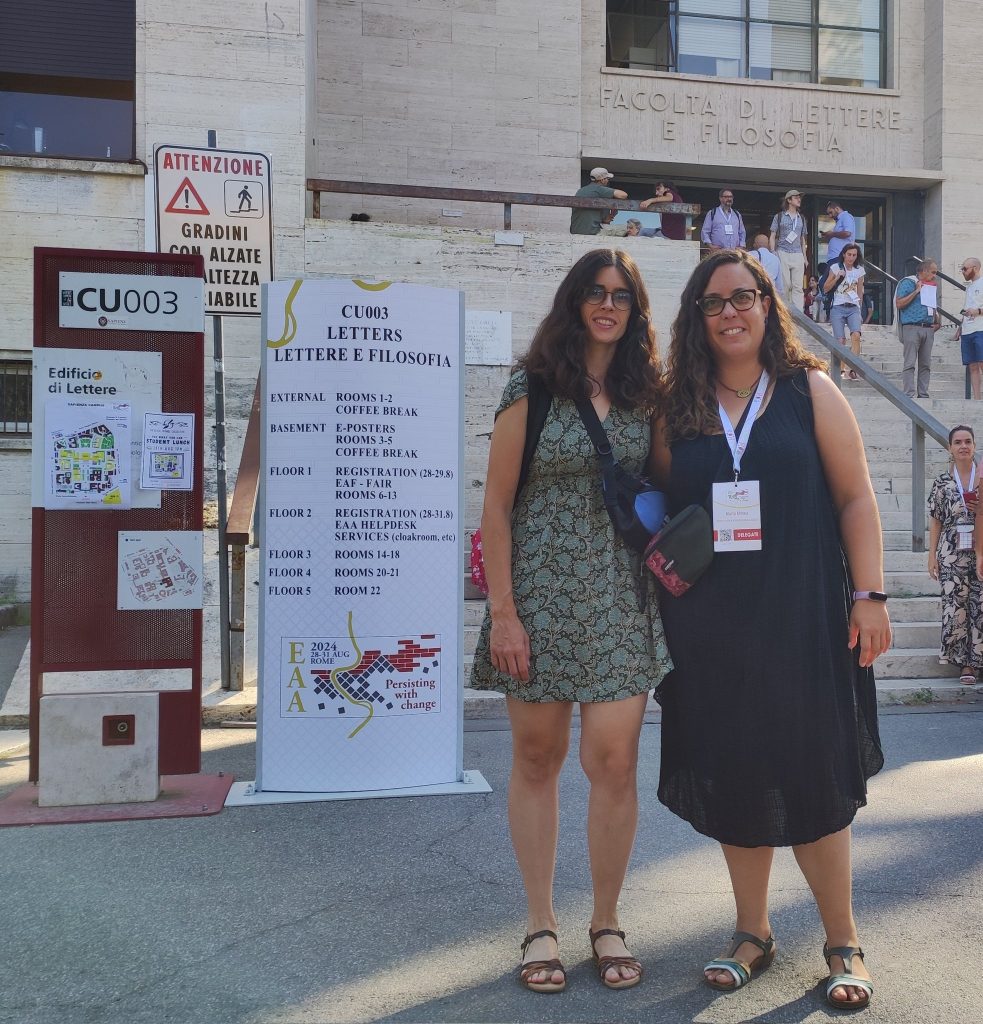
Presentaciones:
- Marta Mateu, (ICAC-CERCA), M. Carme Belarte (ICREA-ICAC), María Pastor (UA-ICAC) y Carme Saorin (UB) presentaron “From the Hearth: Differentiating Combustion Surfaces from Other Hardened Flat Earthen Fragments” (Session 160. Mysterious Mud: A Transversal Approach to Interpreting Unsolved Earthen Remains).
- Enric Colom (UnED-ICAC) y Ramon Járrega (ICAC-CERCA) presentaron “New Evidence of Trade Networks Between Hispania and Rome” (Session 417. Hispania and the Mediterranean: New Approaches to the Analysis of Sea-and-inland Networks (3rd C. Bc-7th C. Ad).
- Maria Rueda y Ramon Járrega (ICAC-CERCA) presentaron “The Value of Dolia in the Assessment of the Roman Rural Organization. A Case of Study Form North-western Hispania” (Session 468. The Relationship Between Rural Settlements and the Territory During the Roman Period and Late Antiquity).
- M. Carme Belarte (ICREA-ICAC), Marta Mateu (ICAC-CERCA), María Pastor (UA-ICAC), Carme Saorín (UB), Dani López (Arqueovitis, Sccl), Joan Canela (ICAC), Antoni Corrales (ICAC), Georgina Prats (Univ. de Lleida) y Maria Anguera (ICAC) presentaron “Hearths or Plasters? A Methodological Proposal to Interpret Flat Surface Earthen Remains from Mediterranean Protohistoric Secondary Contexts” (Session 997. Cha?Ne Op?Ratoire and Life Cycle of Protohistoric and Ancient Building Materials).
El grupo de investigación ArPA-LIRA participó en el 30.º Congreso Anual de la EAA con dos contribuciones.
- Simona Perna (ICAC-CERCA) presentó “Crossing Paths. People-craft Interaction in Greek and Roman Stone Working. Insights From Marble and Decorative Stone Vases” (Session 814. Materialising Meaning. Centreing The Role of Social Interactions in Archaeomaterials Studies).
- Owain Morris presentó “Far from the ‘Med-ding’ Crowd? Gender, Networks, and the Wool Trade in Eia Hirpinia” (Session 1173. Gender and Economies in Transition in the 1st Millennium Bc Mediterranean).
El 30.º Congreso Anual de la EAA ha sido un evento altamente productivo para los investigadores e investigadoras del ICAC-CERCA, quienes desempeñaron un papel clave en la formación de discusiones y el intercambio de conocimiento y experiencias en la práctica arqueológica.
Con contribuciones diversas que abarcan desde enfoques metodológicos avanzados hasta colaboraciones interdisciplinarias, el ICAC-CERCA continúa influyendo en el panorama arqueológico a escala international.
Esperamos aplicar los conocimientos adquiridos y continuar avanzando en nuestra investigación el próximo año.
Sobre el Instituto Catalán de Arqueología Clásica (ICAC-CERCA)
El Instituto Catalán de Arqueología Clásica (ICAC-CERCA) es un centro CERCA creado como consorcio en 2003 por la Generalitat de Catalunya y la Universidad Rovira i Virgili. Es una institución catalana con vocación internacional, puntera en la investigación y conservación del patrimonio arqueológico. Tiene su sede en Tarragona, ciudad reconocida como Patrimonio Mundial por la UNESCO en el año 2000. Sus investigadores e investigadoras trabajan para comprender el pasado a través del estudio de los restos arqueológicos y promover la preservación del legado histórico. ¡Somos CERCA!
Para más información, visitad el sitio web del ICAC en www.icac.cat.
